Murder trial: Great grandmother testifies of concerns about baby’s weight weeks before her death
JONESBOROUGH, Tenn. (WJHL) — Samiah Crater’s great-grandmother, concerned about her weight loss, urged the toddler’s parents to take Samiah to a pediatrician a month before she died. That’s when the couple limited contact with her, Janice Kendrick testified Thursday in the second day of Sapora Walton’s murder trial.
Elizabethton teacher fired for dragging student by backpack has assault hearing delayed
“That day, (I said) ‘guys, get her to the doctor, she’s losing weight, she’s not eating. Take her temperature, I’m going to call the caseworker,'” Kendrick remembered saying on Jan. 15 or 16 after noticing the changes in a baby she saw nearly every day.
“I lost physical contact with them for at least three weeks,” Kendrick recalled of how her interactions with Samiah’s parents changed after she pressed about getting Samiah to the doctor.
“The phone calls stopped. You know, I wasn’t needed.”
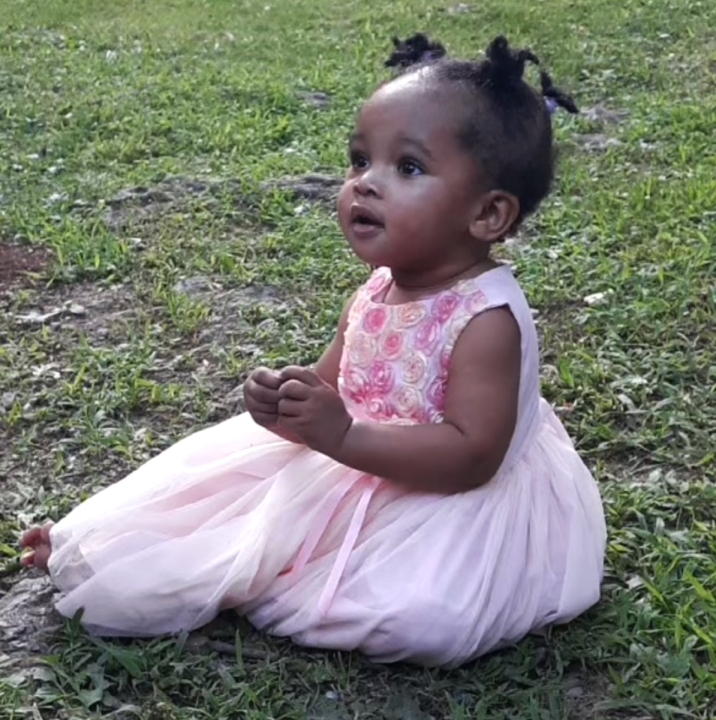
Kendrick’s grandson Jeremiah Crater, who was Samiah’s father, pleaded guilty to first-degree murder last week in exchange for a life sentence.
Thursday, Kendrick was a key witness as prosecutors continued trying to build a first-degree murder case against Walton in her daughter’s Feb. 21, 2020 death. Samiah, who would be kindergarten age if she had lived, was Kendrick’s first great-grandchild.
“I have my last picture that I took during my last visit,” Kendrick said during cross-examination by defense attorney Chris Byrd in what was sometimes emotional testimony.
Assistant District Attorney Dennis Brooks introduced a list of text messages between Kendrick and Samiah’s parents, who shared a phone. Most were from the several weeks following that Jan. 15 or 16 visit, when Kendrick said she was still prodding the couple to make a doctor’s appointment for Samiah.
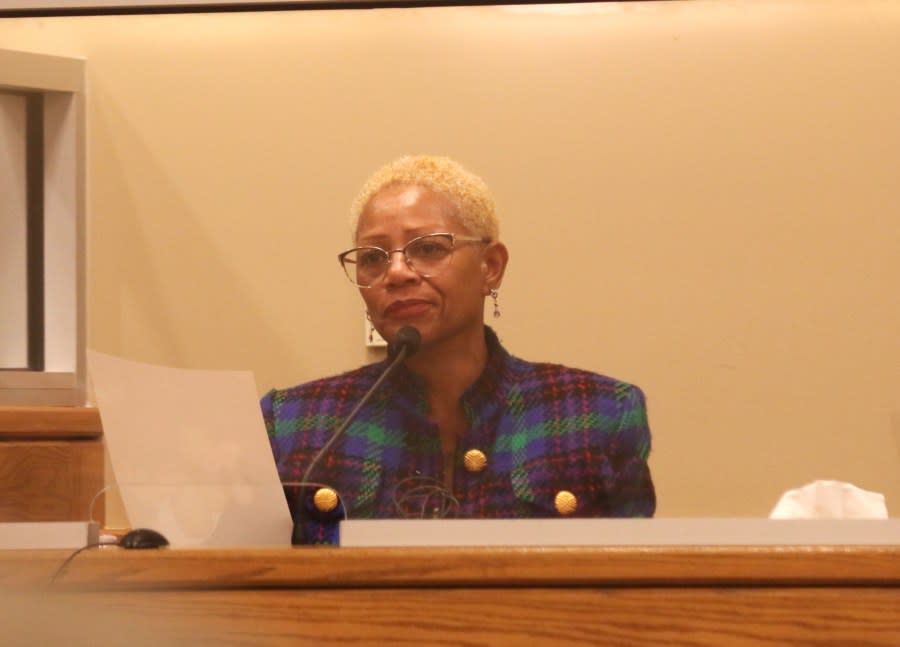
“Mostly Jeremiah would say, ‘we’ll do it, ok, granny, we’ll do it,'” Kendrick told Brooks.
While Kendrick saw red flags on Jan. 15 or 16 2020, she testified — as did several Department of Children’s Services (DCS) staff — that until that point, Samiah had been a healthy looking baby and toddler. That included a 14-month period when she was in foster care as well as most of the nearly four months she lived back with her parents.
But barely a month after that mid-January visit, Samiah was dead, her body bruised by alleged blunt force trauma and her weight down to 12 pounds. She had weighed almost 19 pounds at a wellness checkup nine months before.
No red flags and a healthy baby
Prior to the last time she saw Samiah, Kendrick said her visits were to a healthy looking toddler whose parents were trying to get full custody — and succeeding. Even before late October 2019, which was when DCS granted a “Trial Home Pass” that allowed Samiah to live with her parents, Kendrick saw Samiah, forging a relationship with her foster mother, Heather Calhoun.
“From the time of foster care I’d go to every visit, every play date,” Kendrick said. Despite working two jobs, she’d go to the mall, or usually DCS for those visits. “Wherever it was needed, I was there.
In a day that also featured testimony from DCS staff and two of her pediatricians, Kendrick described her love for her first great grandchild and her efforts to help her grandson and Walton successfully parent their first child.
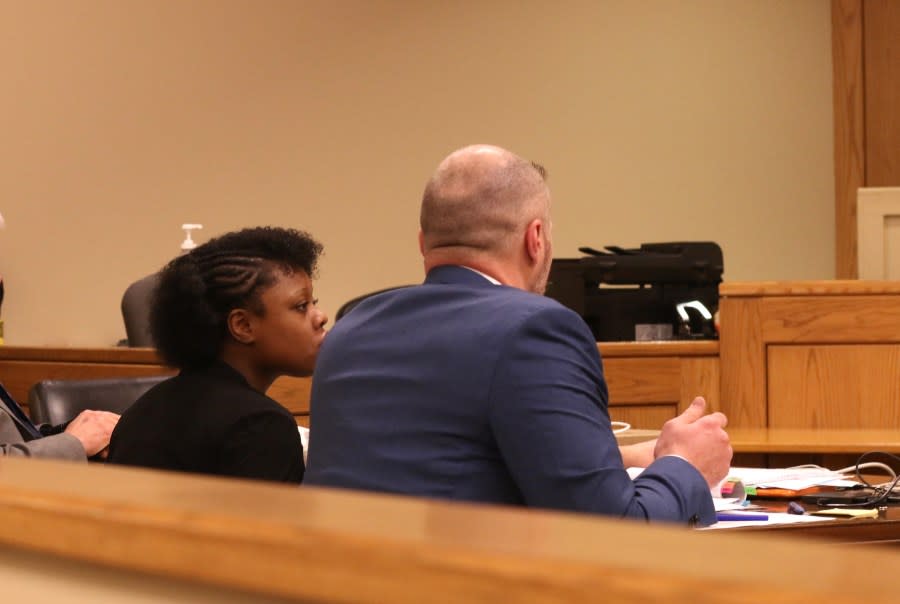
“I was 100% wanting them to have their baby,” Kendrick said during questioning by Assistant District Attorney Dennis Brooks. “I was with them 100% with everything.”
“Everything” was a lot after Crater and Walton lost custody of Samiah in early August 2018, when she was about four weeks old.
Murder trial in 19-month-old’s 2020 death this week
The two were arrested and charged with possession of marijuana for resale at their apartment in Johnson City’s Keystone development. Within hours, Samiah was in foster care.
She began seeing Dr. Demetrio Macariola, who testified that she was “a fairly normal child, thriving, growing in the right direction” when under his care from the age of about six weeks up through January 2019, when she was six months old. By that time she weighed nearly 16 pounds.
Samiah then got care from another pediatric group, and Dr. Josh Shook also described a normally developing infant up through her nine-month well check in May 2019.
Defense attorney Chris Byrd asked both doctors whether an infection of any kind could cause rapid weight loss. Both said that would be limited to a short duration.
Attorneys then turned to DCS’s role. First, they brought Kellie Studer, Samiah’s primary caseworker, back for cross examination. Studer said she had just started at DCS when she got Samiah’s case, which was her first.
Studer said both during Walton’s visits before Samiah went to live with her and then afterward when she visited Walton at the couple’s East Chestnut Street apartment, “I did not have concerns” about her progress as a mother.
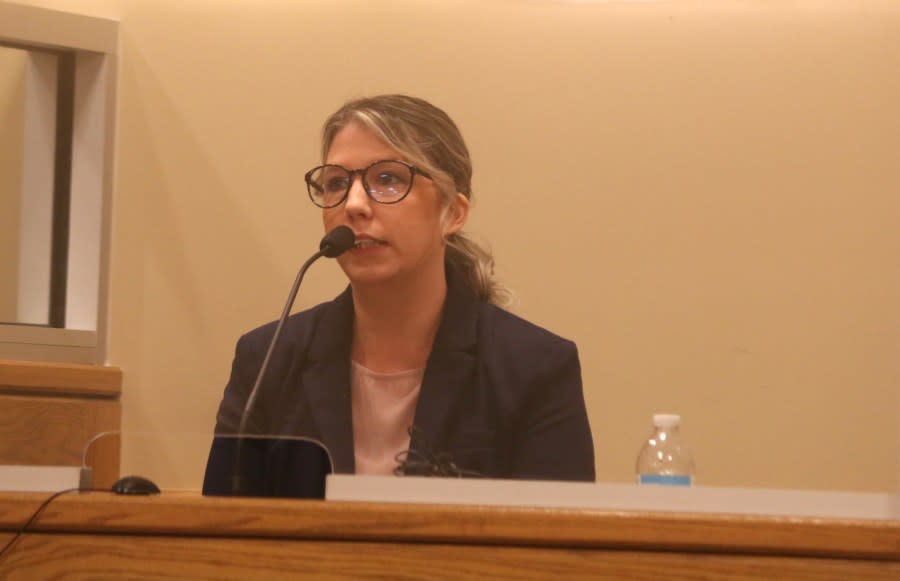
That assessment stayed the same through Jeremiah Crater Jr.’s birth, which enlarged the family just two weeks after Samiah came home. She said she referred the family to various supports and that the home always appeared safe, stocked with food and in good order during her visits.
One of those visits was an unannounced one to Kendrick’s home. “They were making her (Samiah) food, making her oatmeal,” Studer recalled. “It was early in the morning.”
Trying to bridge support after full custody
Custody transferred to the couple on Jan. 10. Studer said she was trying to get an “FSS” or family support services worker in place so the parents would still have support after she left active supervision.
While DCS caseworkers said they saw “no red flags” during home visits and meetings with Jeremiah Crater and Walton — Samiah’s parents — Kendrick said she expressed concerns about Samiah losing weight starting around January 15.
In the meantime, another DCS worker was involved. James Collett is an FSS worker who works in a program for “drug exposed” children. He’d been the first involved with Samiah in 2018 due to the drug aspect.
Just 16 months later, he was at Johnson City Medical Center to check on Jeremiah Jr. because he might also be drug exposed. Sapora Walton had had a positive drug screen at a job. So Collett was back with the family, and Walton told him when he asked her about marijuana that “she used it for pain.”
During one visit, he testified, Collett saw Samiah for the first time in more than a year. He said he came to a clean home with no red flags.
“I even made a comment that I was proud of them gaining custody of Samiah back,” Collett said. “She looked healthy. I made a comment of how big she had grown.”
A third DCS worker who took the witness stand was the last one to see Samiah Crater alive.
Whitney Edens said that a very busy Studer had asked for some help picking up some of her assignments. Edens volunteered for the last home visit for Samiah’s case Jan. 31. Jeremiah was holding his infant son in the living room when Sapora Walton opened the door for her.
Edens said Walton told her Samiah was waking up from a nap and was in her room. They went down the hall and Edens saw Samiah in bed, awake. She was partially under a blanket and wearing a short-sleeved t-shirt.
“She appeared healthy,” Edens said. “There were no visible marks or signs of abuse on her. She was wearing appropriate clothing and did appear to just be waking up from a nap.”
Last DCS meeting February 14 — Where was Samiah?
Collett and another DCS worker met with the family Feb. 14, 2020 for a “Family Support Transfer Meeting.” Walton and Crater were present, along with little Jeremiah Jr.
“We were told that the child was with (Kendrick),” Collett said when asked about Samiah. He said such a scenario wouldn’t be unusual for a meeting that an active toddler could disrupt.
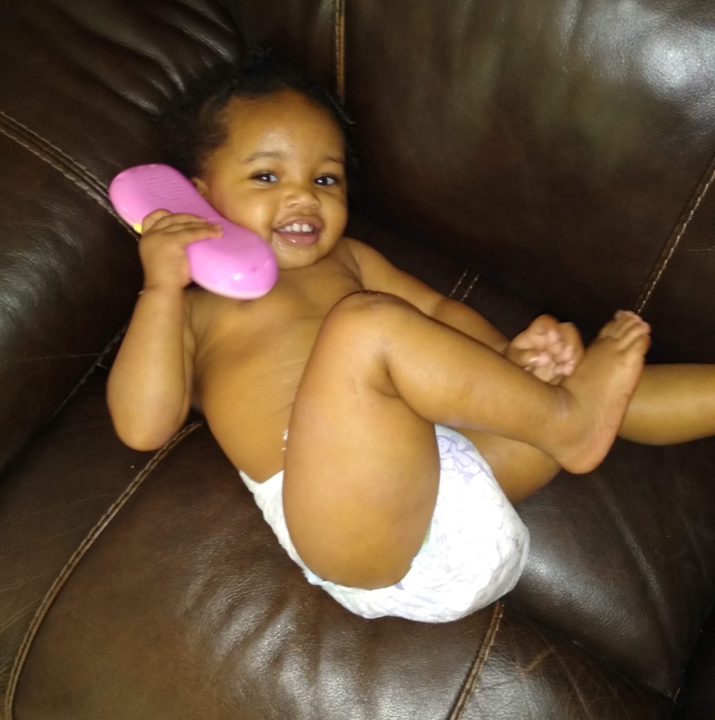
He said the younger baby looked generally healthy and the meeting went well.
But Samiah wasn’t with Kendrick, her great-grandmother testified.
In fact, Kendrick had not seen nearly as much of the couple and their babies since mid-January. She said she’d never gone inside, but only stopped by to drop off groceries or other supplies, or to let them use her car.
“If they told somebody you had Samiah and were babysitting her in February, would that be true,” Brooks asked.
“No sir,” Kendrick answered.
By the time of that meeting, Kendrick hadn’t just urged Samiah’s parents to get her to a doctor. She’d contacted Kellie Studer.
“I told Ms. Kellie is there a way that we can get Samiah to see her pediatrician, and she said is everything ok,” Kendrick said. “I said, ‘yes, everything’s fine, I’m just concerned that she needs to see a pediatrician, she’s now 19 months old.”
Studer told Kendrick that Samiah’s parents could take her. Her parents, though, were telling Kendrick they weren’t interested in DCS being in their business.
She sent them a text saying she wanted Studer to know about the rapid weight loss. Their response: “Why would we tell Kellie that for them to try to make a problem.”
Kendrick, too, was ready for the couple to start taking responsibility. When they backed off on contact, “it was kind of a relief to me, actually,” she said.
“It was an every day, three days a week thing with them. They always needed something. I didn’t mind (the change). To a point I needed to give them that space … and arm’s length. For them to grow up, to be on their own. So it was kind of a relief to me for them to have time with their child.”
‘I don’t want to see you, I want to see the baby’
Kendrick was asleep when a police officer called her on Feb. 21, 2020.
“I picked up the phone and I heard, ‘your granddaughter has passed away,’ and I just started screaming. I didn’t believe it. That’s all I heard, and then I woke my husband up.”
She was asked to do an interview at the Johnson City Police Department. Afterward, an officer said Walton and Crater were in a nearby room. She didn’t want to see them, Kendrick said.
“I went to the room where they was at just to look at them and see their expressions,” she said.
“Just sitting there, and Jeremiah was like, ‘well granny you said you didn’t want to see us. Why didn’t you want to see us?’
“And I’m like, I don’t know how to answer that. Why would I want to see you? You know, I’m upset. This has happened, and I don’t want to see you, I want to see the baby.”
Brooks asked Kendrick if anything in addition to the loss of Samiah was upsetting her in that moment.
“They lied to me,” she said. “They didn’t tell me the truth that they wasn’t taking her to the doctor. They didn’t communicate with me to come and take her to the doctor and things like that. Something that a mother should have done on her own.
“If I had to take off walking, I wouldn’t care about the man or whoever else was there, if I had to take off walking in the snow with my baby I would have been gone.”
Walton’s trial continues Friday and is expected to last into next week.
For the latest news, weather, sports, and streaming video, head to WJHL | Tri-Cities News & Weather.

